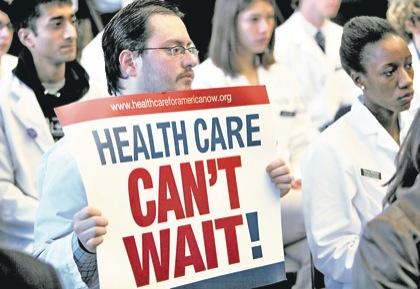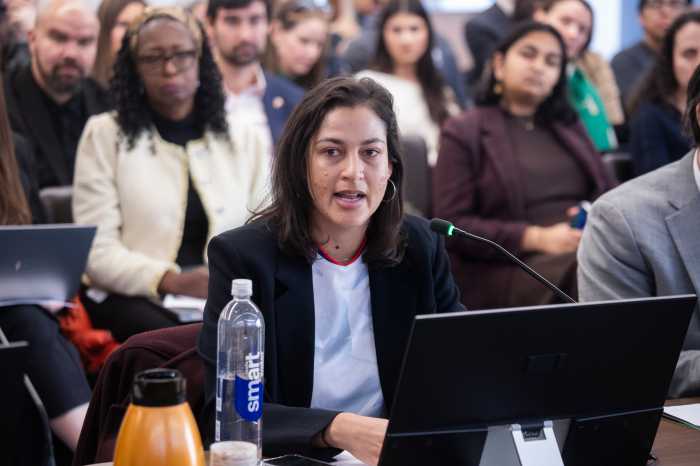By Jeremy Walsh
The U.S. House of Representatives’ version of the federal health care reform bill is expected to pass this weekend, U.S. Rep. Joseph Crowley (D-Jackson Heights) said Tuesday.
The U.S. Senate is also expected to pass a version of the bill later this month. Crowley said legislators hope to have a consensus bill in front of President Barack Obama by mid-December.
The House version of the bill will include a “public option,” Crowley said — an alternative to privately run health plans.
Crowley believes most of his constituents support health care reform, although he admitted he has heard criticism at town hall meetings.
“I think of all the questions I was asked more often than not is, ‘Why are we doing this now?’” he said, noting that Social Security was created during the Great Depression and Medicare came into existence during the turmoil of the Vietnam War and the civil rights movement. “Is there ever a perfect time to do this? I’d say the perfect time is whenever you get the chance to do it.”
The House plan also calls for a two-year study of how Medicare spending varies in different regions with the goal of reducing spending. Many experts worry this study will result in a shift in hospitals’ reimbursements that favors hospitals in more affluent, rural areas at the expense of urban facilities dealing with more of the uninsured and impoverished.
A Dartmouth University study released in February showed that Medicare spent an average of $8,304 per enrollee in 2006. New York topped the list of states in spending per enrollee at $9,564. Hawaii was lowest at $5,311.
In addition to showing a wide disparity in spending between the states, researchers also predicted that by reducing the annual growth in per capita spending from 3.5 percent to 2.4 percent, Medicare could save $1.42 trillion.
The House plan does not include any cuts in Medicare spending, Crowley said.
Crowley was one of eight representatives who negotiated some changes to the proposed congressional study. It will not recommend that the government reduce payments for medical education nor cut disproportionate share payments to hospitals in areas that have many low-income patients.
“Elmhurst Hospital has an overwhelming number of people who have no insurance or are uninsurable because they are undocumented immigrants,” Crowley said. “They can look at DSH payments … but in the end, even after the study comes back, they cannot cut those payments to those hospitals. That would take an act of Congress.”
Reach reporter Jeremy Walsh by e-mail at jewalsh@cnglocal.com or by phone at 718-229-0300, Ext. 154.



































